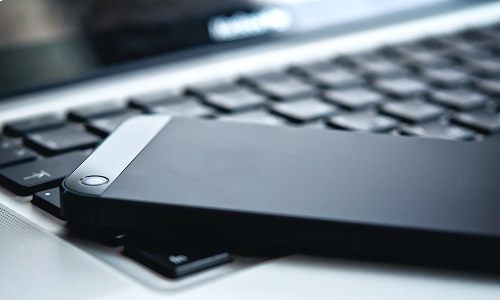Iran Sanctions – OFAC licences issued in favour of Airbus and Boeing
Background
Following Iran's satisfaction of certain requirements under the Joint Comprehensive Plan of Action ("JCPOA"), the United States and the European Union, amongst others, relaxed aviation sanctions against Iran on 16 January 2016. The relaxation of the sanctions, which have been in place in some form or another since 1995, could not come soon enough for the hobbled Iranian aviation industry; in January 2016, the average age of Iranian commercial aircraft was 24 years and almost 40% of the commercial fleet had been grounded due to airworthiness issues.
Applications for Licences
In accordance with the "Statement of Licencing Policy for Activities Related to the Export or Re-Export to Iran of Commercial Passenger Aircraft and Related Parts and Services" ("SLP") issued by the US Treasury's Office of Foreign Assets Control ("OFAC"), since 16 January 2016 US persons can apply to OFAC for a licence to export, lease and sell commercial passenger aircraft and associated parts to Iran. However, the aircraft and parts must be used exclusively for commercial passenger aviation.
Although the SLP is directed primarily at US persons, non-US persons must also apply to OFAC for authorisation to sell or lease aircraft to Iran where 10% or more of the parts used in the relevant aircraft are of US origin and they are controlled for export from the United States to Iran. As such, OFAC approval will be required for the majority of modern commercial aircraft.
In addition, it should be noted that although applications can be made in accordance with the SLP, it is still prohibited to sell, lease or export aircraft or parts to specifically designated nationals / SDNs; we would strongly recommend that the list of SDNs is consulted before engaging in any business with an Iranian person.
Further, applications are considered by OFAC on a case-by-case basis and blanket authorisations will not be granted (although OFAC has shown that it is willing to approve applications en masse).
Licence Approval
After a considerable delay and accusations from various commentators in Iran that the US was not holding up its side of the bargain under the JCPOA, the first licences were issued by OFAC to Airbus and Boeing on 20 September 2016. The Airbus licence authorises the sale of 17 aircraft (out of a 108 aircraft order; Airbus is hopeful of receiving a second licence covering the balance of the aircraft in the near future) and the Boeing licence authorises the sale of 80 aircraft and also allows Boeing to help Iran Air arrange the leasing of a further 29 Boeing aircraft. In addition, following the issuance of the licences, Iran has indicated that it may look at the used aircraft market to refurbish its fleet.
Although licences have been issued by OFAC, it reserves the right to revoke any licence if the political situation sours between the US and Iran. More broadly, any perceived reversal by Iran on its nuclear commitments would be grounds under the JCPOA for the United States to re-impose sanctions as they existed at the end of 2015, and the US government has taken the position that all Iran export licenses issued in the JCOPA period would be subject to revocation. In addition, there has been considerable opposition from the Republican Party in the US regarding the relaxation of sanctions which introduces further uncertainty.
Despite the issuance of licences to Airbus and Boeing, it is understood that lessors will also need to obtain separate OFAC approval to engage in business with Iranian entities.
EU Considerations
On the EU front, there is no general prohibition on doing business with Iran although it is still prohibited for EU nationals and any person in the EU to transact with Iranian persons that are listed under the remaining EU-Iran sanctions regime (the EU's equivalent of SDNs); again, this list should be consulted before engaging in business with an Iranian person.
Stumbling Block
Although the granting of licences to Airbus and Boeing represents a great leap forward for Iran, a significant impediment remains: US financial institutions are currently prohibited from clearing US dollar denominated transactions involving Iranian entities.
Currently, therefore, any sale or lease of aircraft to Iran will need to be denominated in a currency other than US dollars and it is worth noting in this regard that ATR has indicated that it is assembling a mix of lessors and banks to help finance a Euro-denominated sale (backed by COFACE and SACE) with Iran Air.
An additional complication is that, despite various reassurances from US authorities, European and Asian financial institutions are reluctant to become involved with Iranian entities given the uncertain environment, and the massive penalties imposed on banks by US authorities in the past.
As such, any structure involving payments to or from Iranian entities needs very careful consideration in conjunction with the relevant supplier's banks and lawyers.
Cape Town
From a Cape Town Convention perspective, the Iranian government has recently indicated that it is considering acceding to the Convention. Assuming parties can get comfortable with the US dollar issue, such an accession would likely provide some further comfort for banks and lessors looking to do business with Iranian carriers.
Summary
There is little doubt that Airbus and Boeing have cleared a significant hurdle in obtaining their licences from OFAC and that this represents a tremendous boon for Iranian commercial aviation. There is a strong appetite among lenders and lessors to enter this exciting market however for the time being significant challenges, and a degree of uncertainty, remain.
We would like to thank our colleagues at Sheppard Mullin Richter & Hampton LLP in Washington, D.C. for their contribution to this bulletin.



